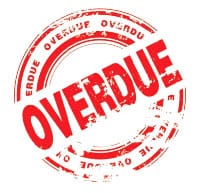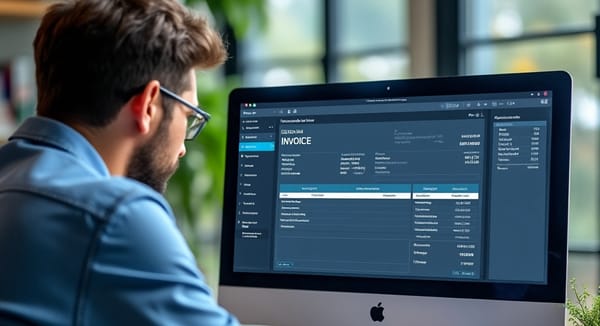10 tips to improve your Credit Control
We all know that there is only one way to go bankrupt: lack of cash. Cash-flow management is therefore just as important as profit monitoring when it comes to manage your business. And the best way to do that is to keep a close eye on what accountants call the Aged Debtors list: those clients who have been billed but have not paid yet.
So how do you do it? Here are 10 tips you should follow to become a pro at managing your cash-flows:
- Don't extend credit. This one is obvious: if you can avoid offering credit, you don't have a problem to solve any more. Unfortunately, there are very few businesses that can afford to not offer credit. In most cases you will have to offer some level of credit. If that's the case, read on.
- Do not invoice manually. With many systems to choose from, some for as low as £10/month, you should not invoice clients using Microsoft Word. Whether it's Kashflow, FreeAgent, Xero or Sage, all allow you to specify your standard terms and will alert you when a bill is overdue. They will also produce the Aged Debtors automatically. Lastly, they will allow you to keep notes so that you know why the bill has not been paid next time you call to follow up.
- Invoice on time. People just won't pay until you send an invoice. So send the invoice out as soon as you start working on a project or right after the goods are sent. Having a computer system in place will help tremendously since creating an invoice is usually just a couple of clicks away. And sending it can be completely automated as well if you use email to invoice your clients.
- Be proactive. Don't wait for 6 months before you inquire unpaid bills. You should be on the phone the day a bill becomes overdue. Some people even call a week before to ensure that all is well, that the client is happy with the service that had been delivered and that the bill will be paid before the deadline. If calling a client to ask for money is something you don't want to do because you are afraid it might strain your relationship, use a virtual assistant, or join up forces with another business owner and call each other's clients.
- Get some money upfront. Never start working on a project without some money upfront. Unless you know the client, there is no reason you should take that risk and most clients will understand. In most instances it's reasonable to ask for 50% of the cost upfront and 50% upon delivery. It's even more important to do so if you sell goods that you have to purchase.
- Check your payment terms. Don't have ridiculously short payment terms that no one will be able to honour but conversely, don't have terms extending beyond 30 days. It might also be worth providing a discount to clients who pay on time: this is an incentive that works and should be considered should you find it hard to bring money in the door. And lastly, make sure your terms are not superseded by the client purchasing terms: a easy way to achieve that is to specify in your terms that any variation on those must be agreed in signing by both the client and you.
- Make your credit terms visible. Clearly print your terms and conditions for payment on invoices but also on any contract signed by the end-client. Also make sure you staff is aware of those conditions and of what to do when a client is in breach. Then, be consistent.
- Make use of all payment options. One of the most powerful tools in the UK is the Direct Debit system. It does not work for all trades but if you provide ongoing services to your clients where the cost is agreed ahead of time (e.g. schools, accounting services etc...) it's worth looking into that option. While most vendors will refuse to sell Direct Debit services directly to small businesses, some accountants will allow you to leverage their platform and make use of their facilities for your own business. You should also accept credit cards so that you have the option to take payment over the phone when calling for reminders: that the simplest way to take care of the "cheque lost in the mail" excuse.
- Never ever mention you need the money. When you follow up with late clients never ever mention that you need the money to pay your VAT or your suppliers. If there is any doubt that you might go under, some clients will just refuse to pay in the hope that should you close down, the administrator will forget about the bill or only ask for a percentage of that bill.
- Outsource recovery. If a client refuses to pay after a couple of reminders, let him know that you are going to have to resort to a recovery agent and that it will have some credit implications for him and his company. At that point you are risking losing the client but remember that there is no such thing as a good client who does not pay the bills. If you show that you care about being paid, your clients will pay you. And remember that if a client has 2 suppliers, one who makes it a point to get paid and another one who is lenient, take a guess who will get the cash first...
Remember turnover is vanity, profit is sanity and payment are reality. But above all Cash is King!



